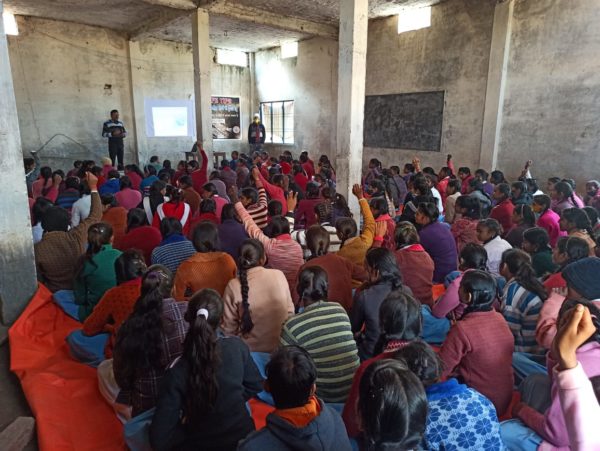We headed to Burkina Faso earlier this year for a training program that traditionally does not fall under the Free the Slaves model for intervention. Our mandate was to train 29 community facilitators on issues of child labor and slavery, social protection and data management systems for monitoring child abuse cases. It turns out that the same techniques we have developed to combat child slavery at mines in Ghana can be used to support other types of child rights projects elsewhere.
We flew to Burkina Faso with a lot of excitement and enthusiasm to venture into this new cultural environment. Our team was met by staffers of Counterpart International for a five hour journey to Banfora. The drive through the countryside revealed a lot about the conditions that people cope with here. It was during the Harmattan, and all the vegetation was bone dry. Harmattan is an Akan word used to describe the cold, dusty winds blowing over West Africa from the Sahara Desert. Temperatures drop to 48°F at night and shoot to 86°F during the day. Humidity can drop to less than 10 percent.
The Counterpart International program aims to reduce child labor in cotton fields and gold mines. A major component of this is to train and support social protection community facilitators who raise awareness of child rights. We were asked to share some of the tools we had developed during our successful Child Rights in Mining pilot project in Ghana.
It was incredible to see the level of passion and enthusiasm among participants towards our training in Burkina Faso. The participants were not passive workshop attendees. They were actively engaged in analytical thinking about how to protect vulnerable children and their families in the communities where they live and work.
The field practice was particularly intriguing. As part of the training, we visited a community deprived of basic amenities such as running water and electricity. Harmattan was taking its toll on the villager’s main source of income: farming. The effect was dramatic. Farm fields lay bare with dried leaves for as far as the eye could see. Despite this, the community was hospitable and vibrant with social activity. Residents were highly receptive to the team that visited for practice.
Our trip to Burkina Faso was a success. A new team of facilitators is now fanning out to communities. We can’t wait to hear about the progress the facilitators will make. As well, we demonstrated that elements of the Free the Slaves model can be adapted and utilized in a variety of settings where child protection interventions are needed.
Editor’s note: Free the Slaves Ghana Director Joha Braimah and Senior Program Manager Christy Gillmore made up the team that visited Burkina Faso earlier this year. Visit our Ghana webpage to learn more about our Child Rights in Mining program.

